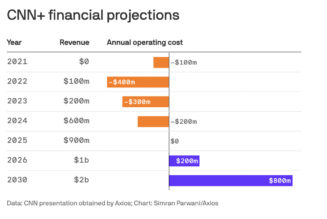
Waymo’s first external fundraising round, initially expected to bring in $2.25 billion for the self-driving company, just grew to $3 billion, thanks to the addition of some new investors.
On March 2nd, Waymo announced its first outside investment round, with investors including Silver Lake, Canada Pension Plan Investment Board, Mubadala Investment Company, Magna International, Andreessen Horowitz, AutoNation, and Waymo’s parent company Alphabet.
That round was extended to include a new crop of investors: funds managed by T. Rowe Price Associates, Perry Creek Capital, and Fidelity Management and Research Company.
To date, Waymo has been an outlier in the world of self-driving cars, relying almost exclusively on the largesse of its corporate parent. With these new funds, the company says it will speed up its plans to commercialize its revolutionary self-driving technology, which it believes will be even more crucial in a world changed by the coronavirus pandemic.
“COVID-19 has underscored how fully self-driving technology can provide safe and hygienic personal mobility and delivery services,” Waymo CEO John Krafcik said in a statement.
The new cash is sure to be welcome news to Waymo’s and Alphabet’s respective financial teams, which are charged with keeping the cash-intensive operation afloat. Waymo is said to be costing Alphabet nearly $1 billion and is only bringing in a paltry amount of revenue from its limited commercial robot taxi service in the suburbs of Phoenix, Arizona.
One of Waymo’s new investors is no stranger to the world of electric and autonomous vehicles. T. Rowe Price Associates is a major investor in Waymo’s main rival, Cruise, as well as EV startup Rivian.
Waymo, which grounded its fleet in March in response to shutdown orders, has said it will resume testing in Arizona this week. Prior to the pandemic, the company says it was facilitating 1,000–2,000 ride-hailing trips in Arizona a week, 5 to 10 percent of which were without human backup drivers.









